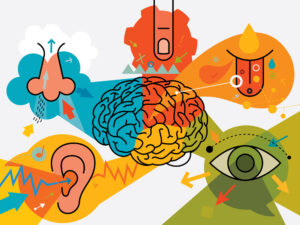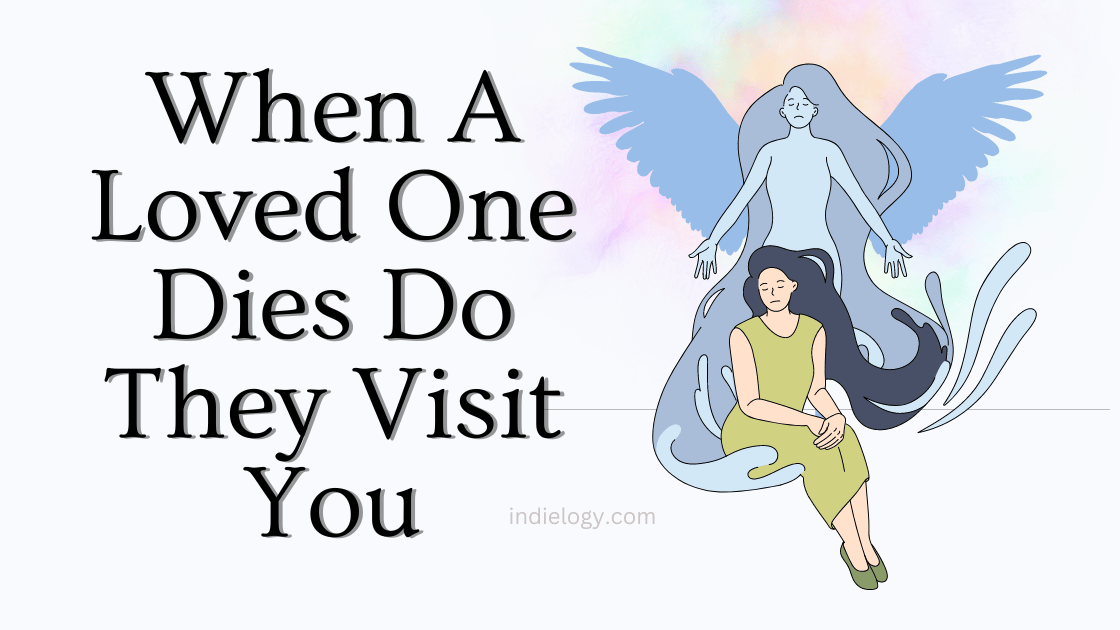The loss of someone we deeply love brings intense grief. In our sorrow, we long to see, speak to, and connect with the one who died. This yearning to reconnect often leads people to ask: when a loved one dies, do they visit us?
This question has been pondered across cultures for centuries. Tales abound of those on the brink of death being greeted by long-gone loved ones, ready to guide them into the afterlife. Bereaved individuals report seeing, hearing, or feeling their departed loved one’s presence.
The notion that those who die can still visit and communicate with us brings comfort and hope to many grieving hearts. Yet, these beliefs also clash with modern scientific understandings of death.
By looking at continuing bonds experiences, spiritual perspectives, scientific insights, and the unconquerable mysteries of grief, we can thoughtfully explore this question without jumping to simplistic conclusions. Let us walk this journey with open minds and compassionate hearts.
The Power of Continuing Bonds Experiences After Loss
When we lose someone dear to our hearts, the pain of their absence reverberates through every aspect of our lives. Days once filled with love and laughter become empty and lonely. Milestones, holidays, and familiar spaces are now marked by a devastating void. Nothing seems quite real without them here.
In the rawness of early grief, the urge to reconnect with lost loved ones is profound. Seeking signs they are still with us brings us comfort. We find ourselves tuning into sensations, symbols, and moments of synchronicity hoping they are messages from beyond.
These continuing bonds experiences are incredibly common during bereavement. Research shows that 50-60% of grieving individuals sense the presence of the deceased in the weeks and months after their death. This figure jumps to 80-90% amongst widows and widowers.
Physical and Sensory Experiences

Bereaved individuals report a diverse array of experiences that connect them to deceased loved ones, including:
- Feeling an unexplained touch, caress, or embrace
- Smelling the scent of the loved one’s perfume, cologne, or favorite foods
- Hearing ringing in the ears, whispers, or someone calling their name
- Seeing fleeting images of the loved one or mistaking strangers for them
- Noticing temperature changes, breezes, or strange behavior from electrical devices
Dreams and Visions
Many grievers have intensely vivid dreams and visions of their departed loved one:
- Some dream the loved one is alive and interact with them as normal
- Others have lucid dreams where the loved one communicates a message
- Some see the loved one surrounded by light, crossing over, or preparing for death
- Meaningful symbols like birds, butterflies, or rainbows may appear
- The dreams often feel comforting, peaceful, and profoundly real
Significant Memories and Events
The bereaved also find meaning in significant memories, discoveries, and timing:
- Comforting childhood memories unexpectedly resurfacing
- Rediscovering nostalgic love notes, cards, or gifts from the loved one
- Major life events coinciding with meaningful dates or numbers related to them
- Passages in books, lyrics, or TV resonating powerfully about grief
- Life milestones occurring that the loved one dreamed of witnessing
Though these continuing bonds experiences vary widely in their details, the overarching themes remain consistent. They provide a powerful sense of reassurance – the feeling that although gone physically, our loved ones still walk beside us. Their essence remains powerfully woven into every aspect of our lives.
Importantly, these experiences bring real comfort to the vast majority of bereaved individuals. Only those with prior mental health conditions are at risk of losing touch with the reality that the experiences represent a symbolic, not literal, presence of the deceased.

Why We Experience Continuing Bonds
Scientific explanations for these phenomena remain limited. Neuroscience shows that the areas of the brain that recognize voices and faces continue responding even after death. Hearing or seeing a loved one may be the mind’s way of filling the void left behind.
Psychology explains continuing bonds as an intuitive grieving behavior. When we lose attachment figures crucial to our sense of security, we instinctively seek to restore that connection through whatever means possible.
Then there are more expansive spiritual perspectives…
But before exploring those, let us remember that continuing bonds experiences are profoundly real in their impact. When understood as symbolic rather than literal, they help many grievers process loss in a culture that rushes to “move on.” If experiences of connection reassure and comfort us, perhaps that is meaning enough, regardless of how we choose to interpret them.
Spiritual Perspectives on Life After Death
Every culture across history has attempted to explain death’s mysteries. Religious and spiritual traditions offer beliefs that resonate for many grieving hearts.
Here we’ll explore some varied perspectives on life after death and relationship possibilities across three major faiths.
Christian Beliefs About the Afterlife
Christianity centers on faith in Jesus Christ’s resurrection and teachings of eternal life for believers. Views differ on if and how the living may interact with the dead.
The mainstream Catholic doctrines include:
- At death, the soul separates from the body to enter either heaven or hell
- Saints and loved ones in heaven intercede for those still on Earth through prayer
- The thin veil between this life and the next occasionally allows mystical visions or interactions with heavenly beings
Protestant beliefs often differ:
- Only God has immortality; the dead enter an unconscious sleep until Jesus’ return
- Any contact with the deceased are eitherfabrications or demons in disguise
- Deceased loved ones cannot hear or respond to us, but are at peace resting in God’s hands
Ultimately, Christians look to God and scripture for comfort without needing to agree on the afterlife’s specifics. Faith centers on reunification with lost loved ones at Jesus’ long-awaited return.
Jewish Beliefs in the Afterlife
In Jewish faith, views on life after death shifted across eras as new scriptures emerged responding to persecution. Core modern beliefs include:
- The soul separates from the body at death, entering either Gehenna or paradise
- One must live ethically and care for others to enter paradise after death
- Paradise reunites loved ones beyond earthly restrictions
- Loved ones in paradise may occasionally visit through dreams
For many Jews today, focusing less on afterlife specifics allows more mindfulness about how we live and treat others in the here and now.
Hindu Perspectives on Reincarnation
Hinduism sees reality as cyclically created, destroyed, and re-manifested. The soul or atman incarnates repeatedly until achieving liberation or moksha. Death frees the soul to reincarnate on its karmic path.
This offers comfort that loved ones who have died will be reborn. Rituals like Parvana help nourish departed ancestors still influencing descendants. Deep meditative states also supposedly allow some to communicate with those reincarnated or departed.
While core Hindu beliefs remain constant, views on afterlife specifics vary between sects. Hindus overall find peace by honoring death’s place in a rhythmic cosmic order.
Across faiths, views diverge based on sacred texts, lived culture, and individual experience. No single perspective can be empirically proven as definitive truth. Yet many continue drawing comfort and meaning from believing in love’s endurance beyond earthly goodbyes.
What Science Reveals About Grief Hallucinations and Dreams
In our current age of science and secularism, the notion of being visited by those who have died gets dismissed as wishful fantasy by many. Without empirical proof, some reject the possibility of contact outright. But the experiences remain real for the bereaved nonetheless.
Scientific research into what gets termed “grief hallucinations” or “post-bereavement hallucinatory experiences” is limited but intriguing. Studies reveal several patterns:
- These experiences are most common soon after death, peaking within the first month of loss.
- All senses can be impacted, but audio and visual hallucinations tend to predominate.
- They decrease in frequency as acute grief subsides but may still occur years later.
- Most people recognize them as hallucinatory and welcome them for their comforting impact.
- They are not associated with mental illness or adverse outcomes unless the griever confuses them with reality.
- Medications, poor sleep, and emotional stress may play a role but don’t fully explain them.
- Cultural and spiritual beliefs shape whether they get interpreted as supernatural communication.
In dreams, we see decreased logic and analytic thinking combined with enhanced emotional intensity and symbolism. This liminal space seems to allow poignant reunions with those we long for but can no longer see upon waking. Dreams of the deceased often bring healing closure.
Neuroscience shows our brain continuously integrates experiences into perceptions of reality. When loved ones die, our mind must assimilate their absence into our understanding of the world. Continuing bonds experiences may represent the mind’s innate drive to make meaning from discontinuity and change.
Ultimately, the empirical evidence remains inconclusive. While science favors reasonable skepticism around literal contact with the deceased, it also cannot definitively disprove its possibility. Truly open-minded science leaves room for life’s enduring mysteries.

Navigating Grief With an Open, Discerning Mind
Losing someone central to our world shakes us to the core. In grief’s anguish, we wish for nothing more than to embrace them again. Seeking signs they remain nearby, still loving and guiding us, is an act of devotion – not of delusion.
Yet the danger comes when we demand the universe adhere to our desired version of reality. Holding rigidly to belief in literal visits from the dead can inhibit processing loss. It traps us wishing this momentary life could fulfill our timeless longing.
Moving forward with grief means embracing death’s finality while still honoring bonds that endure. Our loved ones may no longer walk this earth, but their imprint endures within and around us through memory, influence, and legacy. Death changes but does not end relationship.
When unusual phenomena occur in the midst of mourning, we can receive them with discernment. Exploring such experiences thoughtfully requires asking reflective questions without hasty judgment:
- Could this be wishful imaginings of my grieving mind?
- Might this represent something empirical science cannot yet explain?
- Does it matter if I determine the exact cause, or just that I find peace?
- Could perceiving this as a visitation comfort me, or deepen my denial?
- How can I treat this experience as a gift to grow from while still letting go?
By holding space for grief’s mysteries with empathy, openness, and discernment, we need not force rigid explanations onto our loss. There is wisdom in cautiously seeking truth while also embracing life’s inexplicable moments. Together, spiritual beliefs, scientific analysis, and our own intuitive wisdom each have gifts to offer the brokenhearted.
We best honor our loved one’s legacy through courageous grief – by living fully, loving boldly, and seeking comfort without clinging to expectations. Their life lives on through how we choose to live ours each day forward. Though the pain of their absence will never fully fade, in time it will make space for us to see the light of life again.
Grieving deeply takes great courage. May we approach it gently, give it space for mystery, and find hope in both remembrance andRelease.

